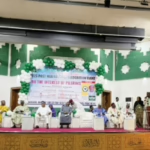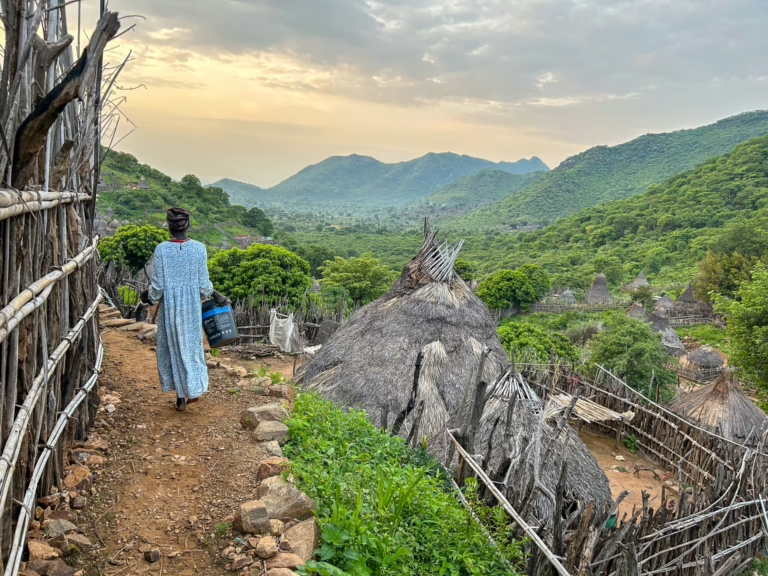Torit, South Sudan – Solomon Oture found himself fleeing for his life.
As a traditional rainmaker, his role was to invoke rainfall-the essential element sustaining his small agricultural community-through sacred ceremonies and prayers.
However, after enduring several years of relentless drought, Oture’s bond with his home village of Lohobohobo-a secluded settlement nestled on the western slopes of South Sudan’s Lopit mountains-began to deteriorate. Community leaders, frustrated by the ongoing dry spells, demanded answers for the failed rains.
With tensions escalating, the man in his early 50s feared for his safety and sought refuge at his brother’s widow’s house in a neighboring village, a journey that took four hours on foot.
His respite was brief.
In early October 2024, a group of young men from Lohobohobo arrived, making it clear that Oture had no option but to return with them.
The next day, he was presented before the community in the village’s central square-a dusty clearing surrounded by a crude wooden fence. As the elders prepared to question him, the village’s ruling body of able-bodied men, known as the Monyomiji, stepped in, declaring that a verdict had already been reached.
Eyewitnesses recount that Oture did not resist; he calmly followed as he was led away from the square, out of the village, and down the mountain to a freshly excavated pit.
At the edge of the grave, Oture descended into the earth and was buried alive.
Rainmakers Under Threat
South Sudan, a nation grappling with the severe impacts of climate change, has witnessed devastating floods and prolonged droughts that have displaced countless families and intensified one of the globe’s most severe hunger emergencies.
In this climate of despair, communities seek explanations-and sometimes scapegoats. In farming villages heavily reliant on seasonal rains, this has placed traditional rainmakers in precarious positions.
Oture’s death was initially reported by local news outlets and later corroborated by his relatives, government officials in Torit, and villagers from Lohobohobo.
Tragically, Oture is not an isolated case.
Over the past 40 years, at least five rainmakers in the Lopit mountains have been buried alive, according to local leaders and media accounts. One such incident in a neighboring village in 2021 was confirmed by a family member to Al Jazeera. Additional reports mention rainmakers being burned, beaten, or forced into exile in nearby regions, though the full extent remains unknown.
Community members often hesitate to discuss these killings openly.
This investigation aimed to uncover the circumstances surrounding Oture’s death and its underlying causes. Nearly a year after the incident, the topic remains taboo in Lohobohobo, with villagers reluctant to share details. When approached, many showed visible discomfort, and those willing to speak did so with evident fear.
Interviews conducted in Lohobohobo, Torit, and Juba did not name the alleged perpetrators but identified them as members of the Monyomiji, the group tasked with upholding customary laws and safeguarding the village.
Matthew Oromo, a former government official who probed Oture’s death, explained that the Monyomiji had explicitly warned villagers against discussing the matter publicly. Those who defied this directive risked being branded traitors and expelled.
The narrative of Oture’s demise is pieced together from testimonies of witnesses and those who spoke with them. To protect their safety, the identities of Lohobohobo residents interviewed remain confidential.
Experts in the region advise caution when addressing the subject with the accused, as it could provoke retaliation against those suspected of speaking out.
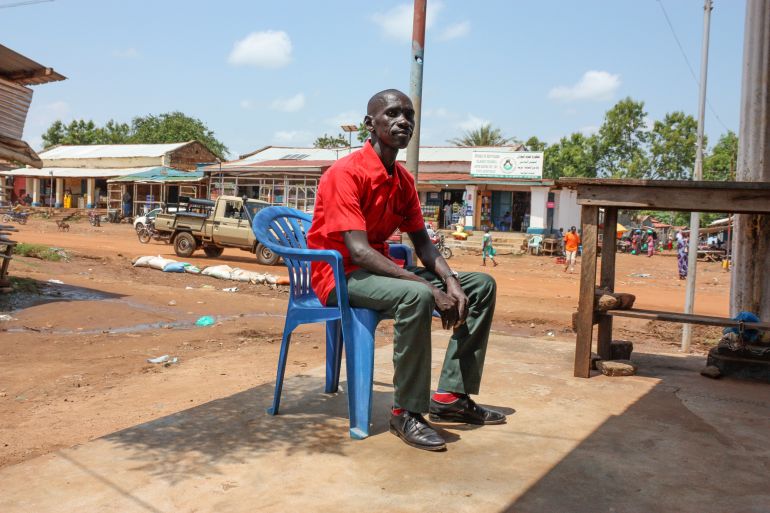
The Dangerous Role of Rainmakers
Lohobohobo is a modest village of a few hundred households situated in Eastern Equatoria state, South Sudan, bordering Uganda and Kenya. Tucked within the Lopit mountain range, the village is a lush network of stone-lined paths weaving between thatched huts and small-scale gardens. Despite limited resources, locals welcome visitors warmly, often sharing meals of sorghum, meat, and wild greens harvested nearby.
In this rain-dependent agricultural region, rainmakers have historically held esteemed positions.
American social theorist Mark Anspach, in the foreword to the 1992 anthropological study Kings of Disaster by Simon Simonse, notes, “Drought is the most devastating affliction for Southeastern South Sudan’s mountainous areas. Since rainmakers are believed to control drought, they are regarded as paramount leaders.”
Rainmakers conduct ceremonies at the start of planting seasons and receive compensation in livestock, crops, and labor. They are often respectfully addressed as “Sultan.”
Their powers are traditionally inherited, with only one rainmaker from a family serving at a time. The area under a rainmaker’s influence, called a “raindom,” usually covers several villages, and multiple rainmakers may share jurisdiction.
Al Jazeera spoke with two rainmakers from Oture’s region, who requested anonymity for safety reasons.
Both have served for over ten years, inheriting their roles from relatives, and have endured severe droughts in recent times.
One described the rainmaking ritual: holding sacred stones, spitting on them, and lifting them skyward to call for rain. Occasionally, they gather insects from fields, place them on altars, and symbolically pierce them with ceremonial spears.
Yet, the rainmaker emphasized, “It is not I who brings the rain, but God.”
When questioned about conflicts with the Monyomiji, the rainmaker became reserved but admitted that during droughts, scrutiny intensifies. “That is when I feel fear,” they said.
“The Monyomiji may summon me and ask, ‘Why is there no rain? Are you not doing your work?’ They can become angry.”
Throughout South Sudan’s southern Equatoria, the role of rainmaker has long been fraught with danger.
Anspach writes, “The rainmaker often bears the community’s collective frustration during hard times. Their duty is not only to summon rain but to absorb the people’s suffering.”
Historical records show rainmakers have faced lynching since the 19th century. Today, with climate change causing unpredictable weather and a fragile government unable to enforce law beyond the capital, these spiritual leaders face unprecedented risks.
Researcher Ranga Gworo, who began studying violence against spiritual figures after a relative was accused of cursing the rains and forced to flee, remarked, “Rain is the most sensitive topic in our communities because it directly affects survival.”
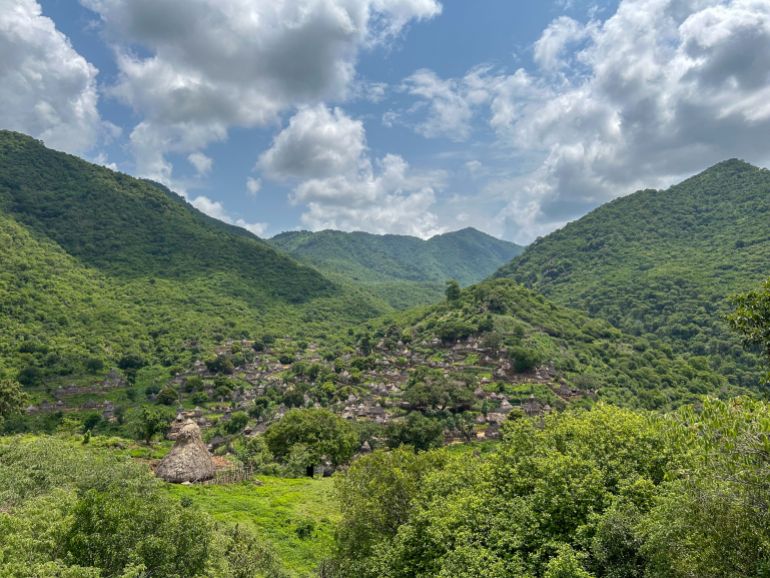
Survival Through Hunting and Foraging
South Sudan ranks among the countries most vulnerable to climate change. Emerging from years of civil conflict in 2018, the nation was ill-prepared to handle the extreme weather patterns sweeping East Africa.
Starting in 2019, a year after a peace agreement formed a unity government, historic floods inundated vast areas, displacing millions. Simultaneously, erratic rainfall devastated farming communities in southern Equatoria, once the country’s agricultural heartland.
Pietro*, a farmer in his late 20s, lived in Lohobohobo until July 2022, when a catastrophic crop failure forced him to seek work elsewhere.
“There was no rain,” he recalled, with his wife and two young children facing hunger.
Pietro and friends trekked 70 kilometers to Torit, then borrowed money to travel another 140 kilometers to Juba. There, he found laborer work, earning about 40,000 South Sudanese pounds weekly-roughly $50 at the time.
“It wasn’t enough,” he said. Eventually, he returned to Lohobohobo last year to try farming again. “The situation hasn’t improved,” he lamented.
By 2023, many residents of rural Eastern Equatoria began migrating to cities and refugee camps. Those remaining in villages like Lohobohobo resorted to gathering wild fruits and hunting to survive, according to local chief Zakaria Akaba.
In November 2023, UN food security experts warned of “emergency levels” of hunger in the county including Lohobohobo, citing prolonged dry spells causing crop failures. The World Food Programme rushed emergency food aid to prevent starvation as thousands journeyed to Juba.
“It was heartbreaking,” Akaba said.
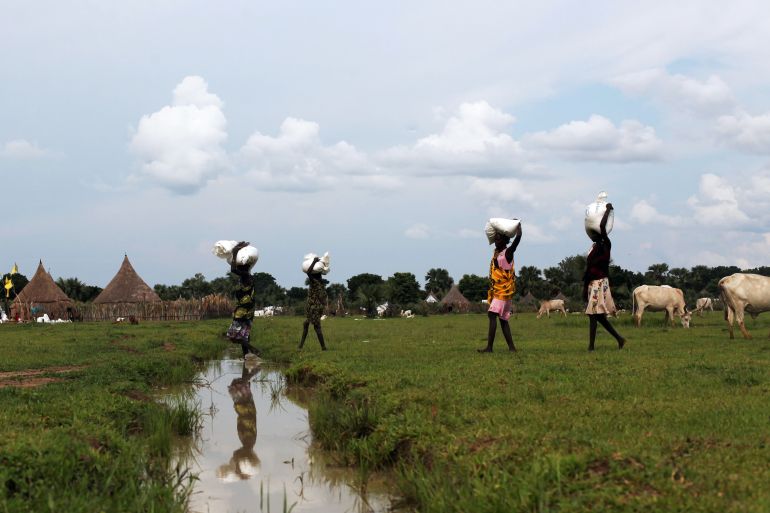
Strained Ties Amid Persistent Drought
Those familiar with Oture described him as friendly and diligent, though his behavior could become unpredictable and aggressive when intoxicated.
In 2009, while drunk, Oture threw a spear that fatally wounded his wife, according to his eldest son, Owuor Solomon John, who witnessed the incident as a child. She passed away days later in a hospital. The village dismissed the tragedy as a “domestic matter,” John said.
Oture assumed the rainmaker role in 2017, inheriting it from his uncle. His volatile nature persisted, and in the years leading to his death, rumors and accusations circulated.
Some alleged that, out of revenge for personal grievances, Oture performed harmful rituals to withhold rain. One man claimed Oture buried a baboon skull as a curse. Others accused him of physically assaulting a child.
As drought conditions worsened, Oture reportedly began demanding excessive compensation for his services, blaming those he claimed had wronged him for the lack of rain and demanding livestock as restitution, according to several villagers.
“The rainmaker’s role has turned into a business,” said Ambose Oyet, a community leader from Imehejek, the region encompassing Lohobohobo. “He wanted to be revered like a deity,” added Oromo, Imehejek’s former chief official.
While these claims could not be independently verified, they highlight Oture’s growing estrangement from his community.
By late 2024, Oture’s deteriorating relationship with villagers coincided with a third consecutive dry season. As crops failed and hunger loomed, tensions between Oture and the Monyomiji escalated.
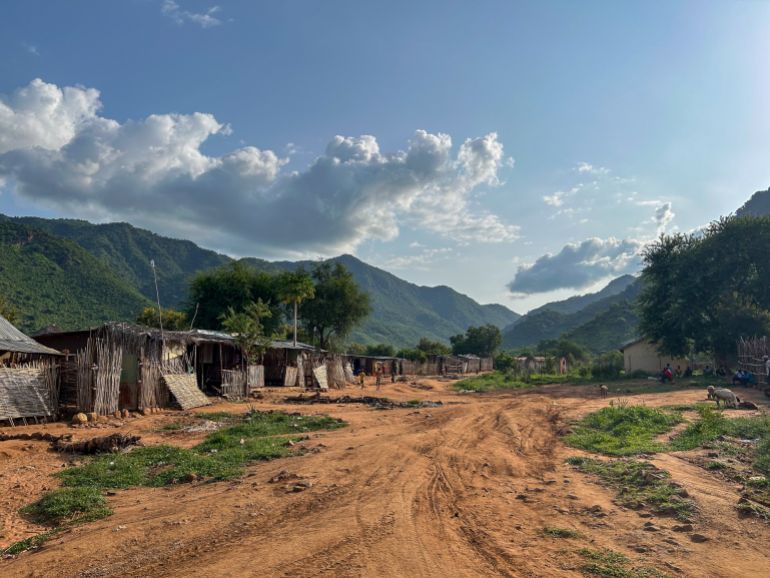
“Beyond Our Control”
In Lohobohobo and other Lopit mountain villages, each new generation of Monyomiji-who assume authority every 10 to 15 years-pledges to shield the community from various threats.
They defend the village from attacks, pursue cattle raiders, and assist the sick in reaching distant clinics. Yet, the gravest challenge in this drought-prone area is hunger.
Luka Asayai, 38, leader of Lohobohobo’s Monyomiji, explained that they manage food security by regulating farming activities. They decide which crops to plant and when, ensure able-bodied villagers work the fields, raise funds to purchase food after poor harvests, and organize communal farming for vulnerable groups like the elderly and widows.
The Monyomiji also oversee rainmakers, responsible for initiating rituals, providing compensation, and holding them accountable.
Oromo, the former government official, and Leone Oriho, paramount chief of Imehejek, allege that the Lohobohobo Monyomiji were responsible for Oture’s burial alive.
When questioned about the relationship between the Monyomiji and rainmakers, Asayai admitted that droughts “can cause friction” but did not elaborate on recent violent incidents. He stated that during dry spells, the community collectively prays through the rainmaker.
In villages far from police presence, the Monyomiji enforce customary laws, summon offenders, and sometimes administer corporal punishment. “The government is distant,” Asayai said. “They have their ways; we have ours.”
Access to Lohobohobo is limited, especially during rainy seasons when the rough dirt road from Torit becomes nearly impassable.
Police in Torit acknowledge difficulties investigating crimes in remote villages, relying on local chiefs as extensions of state authority. However, Leone Oriho, the highest-ranking chief in the Lopit mountains, stated that the Monyomiji are heavily armed and operate beyond even the chiefs’ control. “They have exceeded our authority,” he said.
With the state powerless to intervene, local Monyomiji act as judge, jury, and executioner regarding rainmakers, according to officials.
In 2021, Lodovico Hobon Angelo, a 43-year-old rainmaker from the neighboring village of Mura Lopit, was buried alive during a severe drought after accusations of exploiting his position. Oyet, a Mura Lopit native, recalled that the Monyomiji had tried to bury Hobon a decade earlier but were stopped by community intervention.
At least six rainmakers have been killed in the Lopit mountains over the past 40 years, with more deaths reported across Eastern Equatoria.
Despite these crimes, no arrests have been made. “It is our culture,” Oriho said. “The Monyomiji prevent government interference in our traditions.”
Community leaders explained that burying rainmakers alive diffuses individual blame. “The community assumes collective responsibility by burying the person,” said one villager who requested anonymity out of fear. “The government then cannot arrest the entire community.”
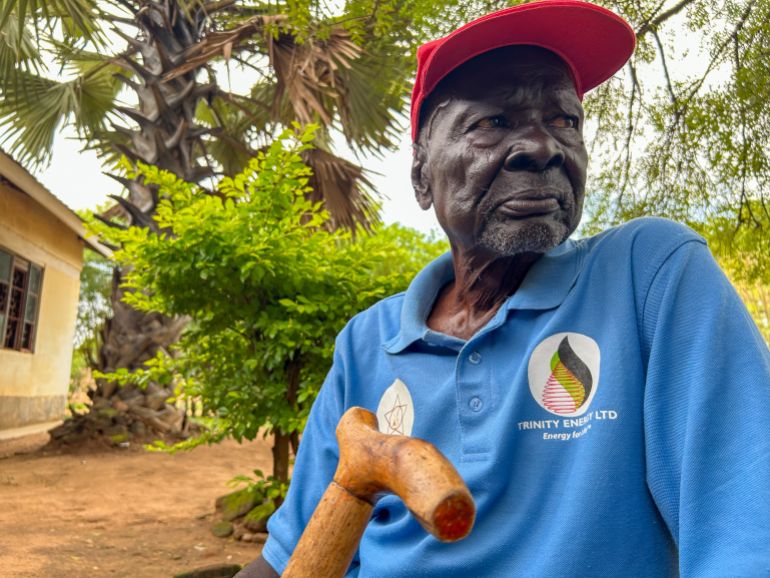
Warnings and Silence
Oromo, who served as Imehejek’s chief administrator until June, was in Torit in late 2024 when he learned of Oture’s death from Oriho. The state governor tasked him with investigating.
Upon arriving in Lohobohobo, the Monyomiji refused to engage with him. “They were wary of me,” Oromo said. Some villagers spoke privately, expressing sorrow over the killing, but no suspects were identified.
Frustrated, Oromo returned to Torit but revisited Lohobohobo in June during a broader administrative tour. He addressed the community on climate change as a global challenge and emphasized the importance of law and order, warning the Monyomiji not to repeat Oture’s fate and hinting that the government might take serious action if they did.
While some villagers resented Oture, it remains unclear how much support existed for his execution.
Multiple sources told Al Jazeera that the community was instructed not to report Oture’s murder to authorities.
Oromo recalled that during his initial visit, some expressed remorse and apologized for the Monyomiji’s actions but said they had been warned to remain silent. Public mourning or funerals for Oture were prohibited.
Oyet noted that holding a funeral would be seen as defiance against the community.
In Lohobohobo, some residents altered the story of Oture’s death, while others avoided mentioning him altogether.
One initially claimed Oture had committed suicide but later admitted he was buried alive when confronted with media reports.
Another, when asked about rainmaker punishments, whispered that a rainmaker had recently been expelled from the village and, when pressed for a name, quietly said, “Solomon.”
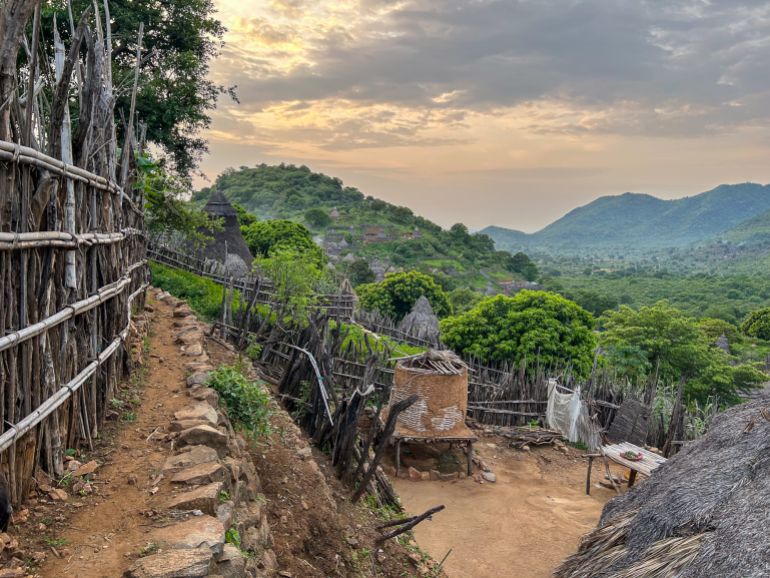
“Deep Sorrow”
John, Oture’s son, had lived abroad for ten years before arriving in Juba in August 2024. At eight years old, his father sent him to live in Kenya’s Kakuma refugee camp to escape South Sudan’s conflict. Since then, they had spoken only a few times by phone.
In November, John received a call from a cousin informing him of Oture’s death. He ended the call in anger. Despite their complicated relationship, the news “brought me great sorrow,” he said.
When asked about the Monyomiji, John was cautious. “I have no issues with them,” he said. “Their conflict was with my father, not me.”
He considered visiting Lohobohobo someday and smiled as he searched for his grandmother’s hut in photos of the village.
John hopes that such acts of mob justice against rainmakers will cease and that “this story will serve as a lesson for future generations.”
This year’s farming season has seen only slight improvement. Late rains caused widespread crop failures during the first planting season, which usually starts in March. By July, when rains finally arrived, farmers had already spent months replanting failed crops.
Pietro may once again leave his family to seek work. “The situation remains dire; I might return to Juba,” he said. “We plant, but the crops fail.”
Climate projections indicate worsening conditions, with the region’s hottest month expected to rise by over 7°C (12.6°F) by 2060.
“People are losing hope and leaving,” Oromo said. “There is no faith in the rain anymore.”
*Name changed to protect identity



